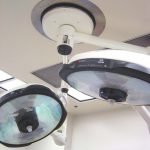While ideally all pleadings and other court documents would contain full and accurate information, sometimes a plaintiff needs to amend when new information comes to light. Under Rule 3025 of the New York Civil Practice Law and Rules, a party may amend a pleading without the court’s leave within 20 days after the pleading is served or within 20 days after service of the response. Thereafter, a party may amend or supplement a pleading by stipulation or leave of the court, which is to be “freely given upon such terms as may be just….” Defendants will often object to a plaintiff amending his or her pleadings, arguing that they would be prejudiced by the amendment. The Supreme Court of the State of New York, County of New York, recently considered whether a plaintiff could amend his bill of particulars in Lopez v. La Fonda Boricua, Inc.
 The plaintiff filed suit after allegedly being injured while working in construction. His verified bill of particulars, served on July 12, 2012, indicated his injuries were fractures in his left leg and ankle. The plaintiff was examined by the defendant’s doctor on May 2, 2013.
The plaintiff filed suit after allegedly being injured while working in construction. His verified bill of particulars, served on July 12, 2012, indicated his injuries were fractures in his left leg and ankle. The plaintiff was examined by the defendant’s doctor on May 2, 2013.
The plaintiff’s attorney requested and received updated medical records from the plaintiff’s treating physician around August 2015. Plaintiff’s counsel stated that there was a report in the records that indicated left common peroneal neuropathy and left tarsal tunnel syndrome related to the injury of the plaintiff’s left leg. The report was dated June 5, 2013, but plaintiff’s counsel said he had not received it before. In August 2015, he served a supplemental/amended bill of particulars. This document stated that the plaintiff had left common peroneal neuropathy and left tarsal tunnel syndrome as a result of the injuries he had already alleged. Additionally, it stated that the plaintiff remained totally disabled from employment and continued to have lost earnings, as alleged previously.
The defendant’s attorney responded that the plaintiff could not amend the bill of particulars without leave of the court. The response stated that the injuries described in the supplemental/amended bill of particulars had not been alleged previously. The response stated that it had been improperly served and was being “rejected and returned.”
The plaintiff then moved for leave to serve the amended bill of particulars. The court noted that the standard used in determining motions for leave to amend a bill of particulars is similar to that in CPLR 3025. Leave to amend should be freely granted absent prejudice to the other party. The court cited previous case law that a bill of particulars can be supplemented with continuing damages only if the continuing damages are “an anticipated sequelae” of the injuries alleged in the original.
The defendant argued that the plaintiff had waited until close to the time of trial before supplementing or amending the bill of particulars, but the court granted the plaintiff’s motion. The court found that the defendant had failed to show undue prejudice and that the supplement merely elaborated on the extent of the injuries without setting out new injuries or a new theory of liability. The plaintiff pointed out that the report by the defendant’s doctor from May 2014 referenced the diagnoses included in the supplemental bill of particulars. The court therefore found that the defense could not argue surprise because its own doctor had informed it of the diagnoses. Additionally, the court noted the fact that plaintiff’s counsel did not receive the records indicating those conditions until August 2015. The court granted the plaintiff’s motion.
The facts here supported allowing the plaintiff leave to supplement or amend the bill of particulars. Plaintiff’s counsel received the information late, through no fault of the plaintiff or counsel. Additionally, the plaintiff was able to show that the defendant already had the information and therefore suffered no surprise or prejudice. If you have been injured through someone else’s negligence, an experienced New York construction accident attorney can help you.
The Law Offices of Nicholas Rose, PLLC offers free consultations. Call 1-877-313-7673.
Additional Resources:
Lopez v. La Fonda Boricua, Inc., March 22, 2016, Supreme Court of the State of New York, County of New York
More Blog Entries:
Plaintiff Wins Partial Summary Judgment on Labor Law § 240 – Somereve v. Plaza Construction Corp., February 24, 2016, New York City Injury Lawyer Blog






